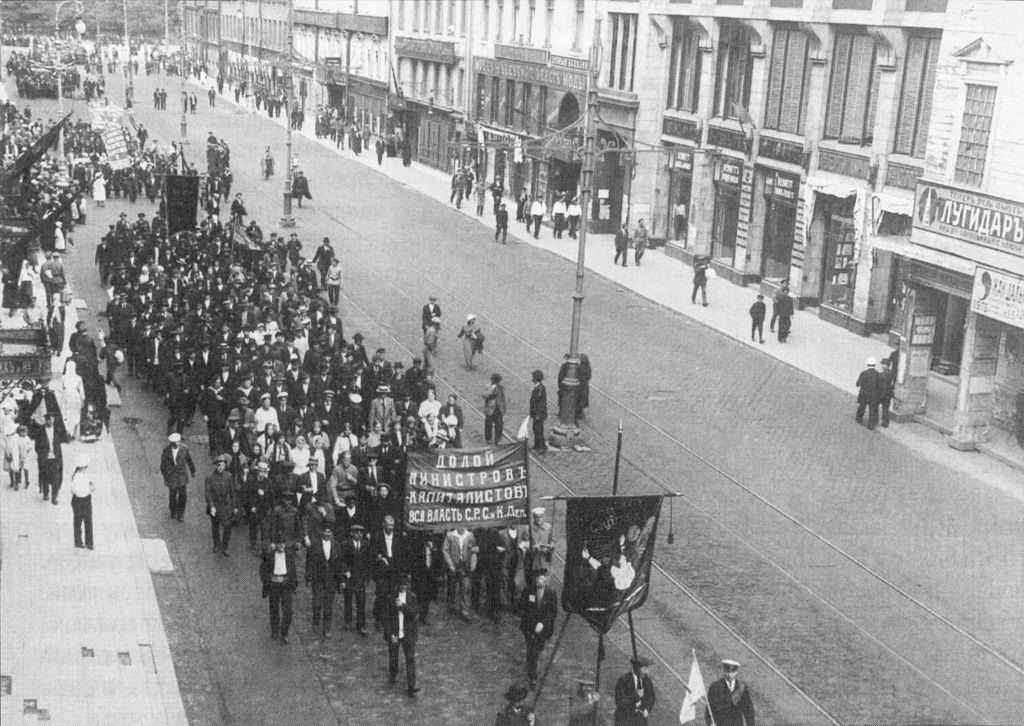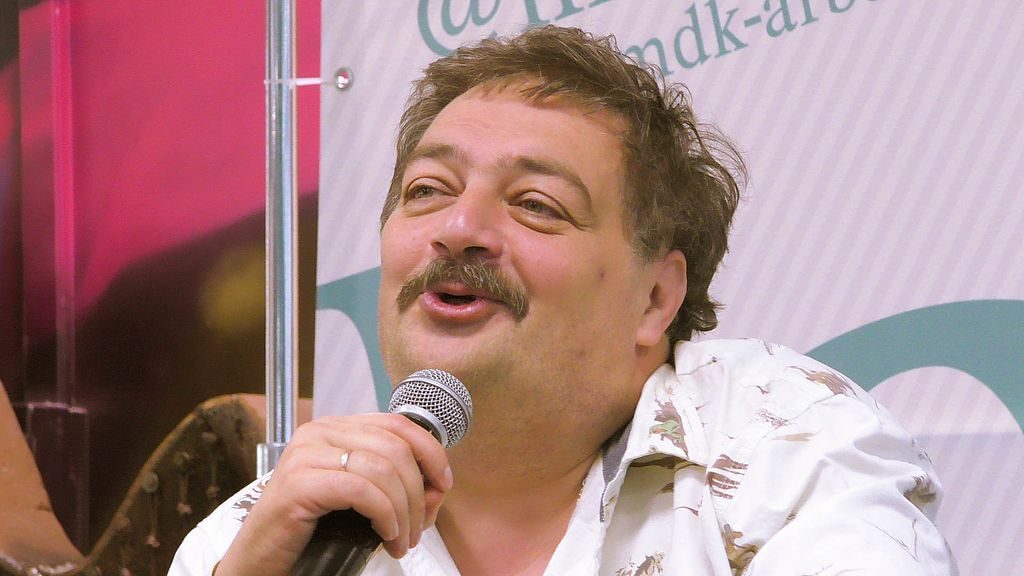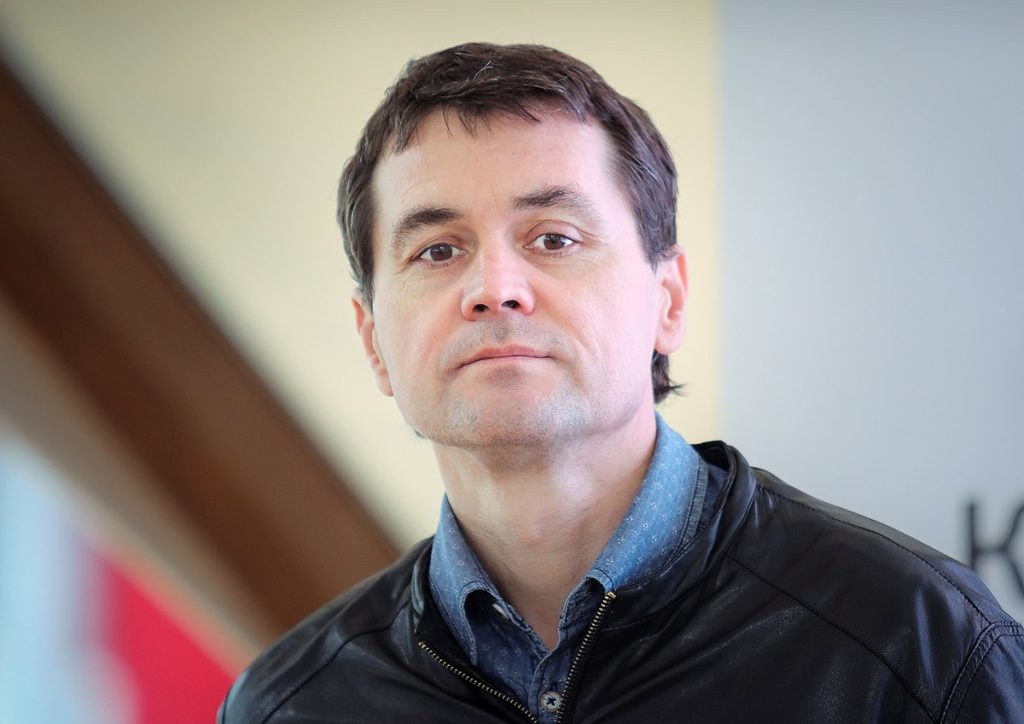“What Would You Do In 1917?” Russian Writers On The Anniversary of the Revolution Posted by Maria on Nov 14, 2017 in History
Each person was asked the following questions, abridged here:
- С кем вы? Кого́ защища́ете и про́тив кого́ выступа́ете? Каки́м хоти́те ви́деть бу́дущее Росси́и? Как вы объясня́ете свой вы́бор?
Who are you with? Who are you defending and who are you struggling against? What future would you like to see for Russia? How do you explain your choice?- У вас есть возмо́жность влия́ть на разви́тие собы́тий и направля́ть их, как вам заблагорассу́дится. Как бы вы измени́ли исто́рию? Како́й избра́ли бы социа́льный строй?
If you could influence how events unfolded and direct them however you pleased, how would you have changed history? What social structure would you have picked?
The full list of responses is available on the magazine’s website, but let us look at some of them below.
Дмитрий Быков
Poet, novelist, and journalist Dmitry Bykov (Дмитрий Быков) supposes he would have joined or at least coexisted with the Bolsheviks:
At the same time, he dismisses the second question, saying “Ничего́ нельзя́ бы́ло бы измени́ть” (“Nothing could have been changed”).Вообще́ я люблю́ масшта́бные зада́чи, и мне каза́лось бы, что Ле́нин предлага́ет и́менно тако́й масшта́б: радика́льное переустро́йство челове́ка, а не то́лько эконо́мики, поли́тики и про́чей мелочёвки. Всё э́то о́чень наи́вно, но совреме́нник всегда́ наи́вен.
In general, I like large-scale challenges, and I would have thought that Lenin was offering that kind of scale — a radical transformation of humans, and not just of the economy, politics, and other minutiae. All of this is very naïve, but people are always naïve about contemporary events.
Анна Матвеева
Essayist Anna Matveeva (Анна Матвеева) wrote a whole fantasy/science fiction story where she remembers helping her daughter write an essay on what she would have done in 1917.
…е́сли кра́тко вы́разить ли́чно моё отноше́ние к э́тому вопро́су, я ни секу́нды не сомнева́ясь, уе́хала бы за грани́цу.
… to briefly express my personal attitude to this issue, I would go abroad without the slightest hesitation.
Шамиль Идиатуллин
Writer Shamil Idiatullin (Шамиль Идиатуллин) thinks there is nothing he could have said to the revolutionary leaders to change the course of history:Да и о чём проси́ть-то? Проси́ть Ле́нина и Троцкого пора́ньше отказа́ться от гото́вности штыка́ми загоня́ть живы́х люде́й в неживу́ю уто́пию?
What could I have asked for? Ask Lenin and Trotsky to give up sooner on their willingness to use force to drive living people into a dead utopia?
However, he does wish the Tatar people had won true self-determination within the new republic:
… мо́жно помечта́ть и о том, как социали́ст Вахитов … прода́вливает сквозь Наркомнац иде́ю Волго-Ура́льского шта́та, све́тского госуда́рства с многоукла́дной эконо́микой, свобо́дой рели́гий, ра́венством ру́сского и неру́сских языко́в с пи́сьменностью на осно́ве лати́нского алфави́та…
… you could dream of the socialist Waxitov … pushes through the People’s Commissariat of Nationalities the idea of a Volga-Ural State, a secular state with a mixed economy, freedom of religion, and equal treatment of Russian and non-Russian languages with a Latin-based alphabet…
Have you read any other analyses or “what-ifs” about the revolution?

Build vocabulary, practice pronunciation, and more with Transparent Language Online. Available anytime, anywhere, on any device.






